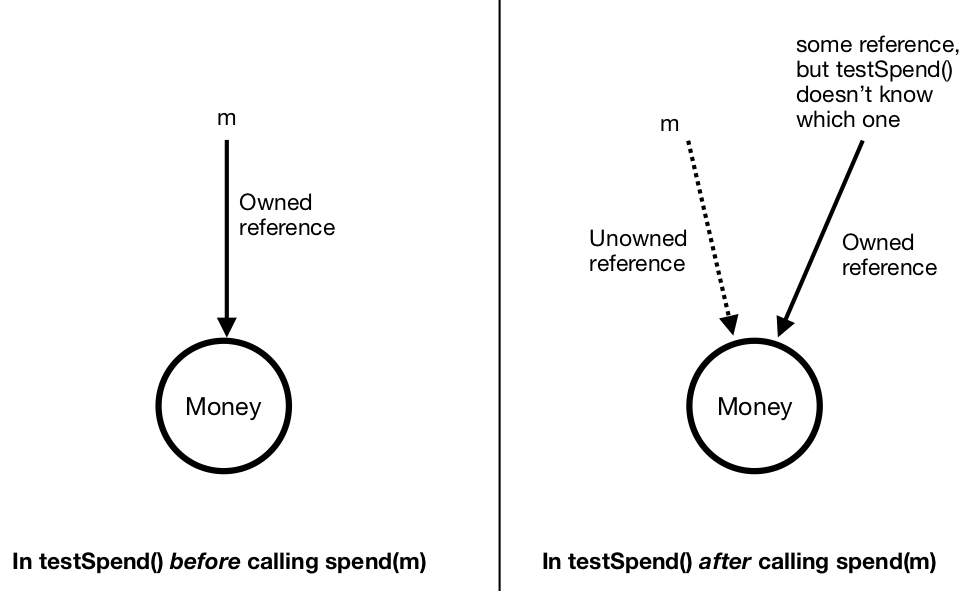Ownership – Transactions¶
Transaction return types¶
When transactions return objects, the type of the returned object must be annotated in the transaction declaration. For example:
transaction withdraw() returns Money@Owned {
// body not shown
return m; //where m is of type Money@Owned
}
If we did not return m within the transaction, or if m was not of type Money@Owned, we would get an error.
Transaction parameters¶
Unlike in traditional programming languages, in Obsidian, the type of a variable can change: ownership is part of types, and ownership can change as operations occur. When a reference is passed to a transaction as an argument, the transaction’s declaration specifies initial and final ownership with >>.
If >> is not specified for a certain parameter, then the ownership of that parameter doesn’t change. For example:
// m is Owned initially but must be Unowned at the end.
// A caller of spend() must initially own the parameter to spend(), but after
// the call returns, the caller no longer owns it (hence the name `spend`).
transaction spend(Money@Owned >> Unowned m) {
// implementation not shown
};
transaction testSpend() {
Money m = ...; // Assume that m is an owning reference.
spend(m);
// m is now of type Money@Unowned because spend() took ownership.
}
transaction foo(Money@Owned m) { //this is the equivalent to Money@Owned >> Owned m
// body not shown
}
The figure below shows how m is an owned reference before spend() is called, but afterward, m is no longer an owner. The code above doesn’t specify which reference is the new owner, since we can’t see the implementation of spend().
If a transaction expects an argument that is Unowned, this means that the transaction cannot take ownership.
As a result, it is safe to pass an Owned reference as an argument to a transaction that expects an Unowned argument.
After the transaction returns, the caller still holds ownership. For example:
transaction logMoney(Money@Unowned m) {
...
}
transaction callLogMoney(Money@Owned m) {
logMoney(m);
// OK; m is still an Owned reference.
}
Transaction receivers (this)¶
Sometimes the ownership of this (the ownership of this contract) needs to change in a transaction.
That can be specified by adding this as the first argument in the transaction declaration. Note that this is implicit,
and is not an actual parameter. For example:
contract Money {
transaction discard(Money@Owned >> Unowned this) {
// implementation not shown
}
}
contract Wallet {
transaction throwAwayMoney(Money@Owned >> Unowned money) {
money.discard(); // 'this' argument is implicit; do not include it in transaction call.
}
}
